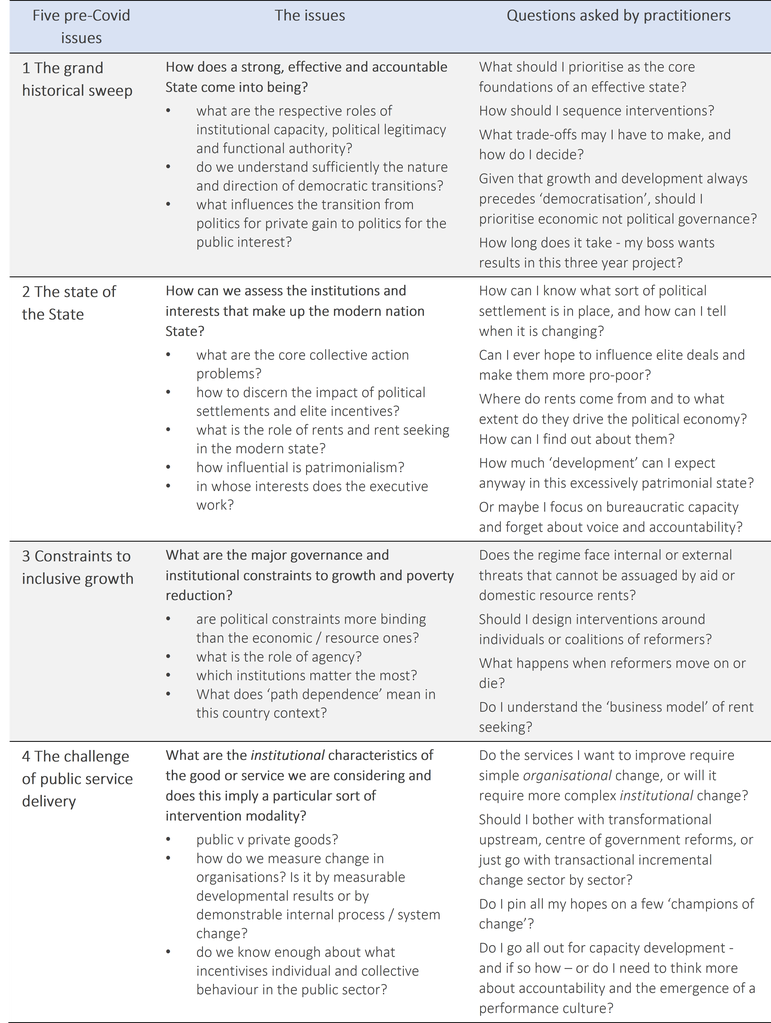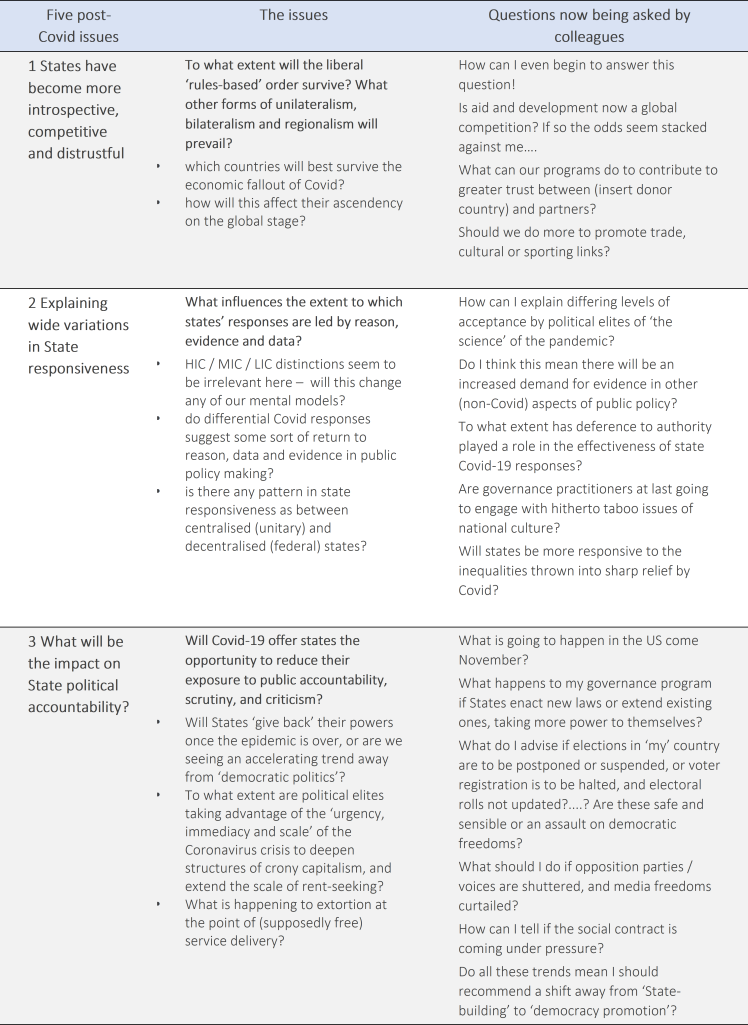
Graham
Teskey
Principal Global Lead of Governance Practice



I know that blogs are supposed to be discursive and informal. Recently our office was privileged to have a session with that master-blogger, Duncan Green, who shared all his tricks and techniques on the art of blogging. However, just this once I am going to ignore everything he said and make my case in two tables.
But first a quick explanation is in order. I perceive (I may be wrong here) that Covid-19 has changed both the focus and the urgency of the governance discourse more in the last six months than anything else has done over the last decade. I am aware I am (possibly hugely) exaggerating here, and I am so doing to make the point. It does seem to me that governance practitioners are now being challenged to transition from a general way of interpreting the world (a view that has clear relevance at every level and in every context), to a much more specific and focused set of questions regarding the immediate here and now Covid-19 implications of that way of interpreting the world. Questions that were rather peripheral in donor-led development circles (the ones with which I am most familiar) now seem to be central:
These are all real and pressing issues, and they are issues on which governance practitioners must have something to say. There have been many articles and papers published to date – each one looking at a particular aspect. This blog merely tries to present an overview.
So Table 1 summarises what - I suggest - were the five dominant pre-Covid-19 ‘overarching’ governance questions. Table 2 presents my initial judgment of what the five post-Covid-19 governance questions may be. A short conclusion brings the blog to an end. Thankfully.




It is not that any of the five ‘pre-Covid-19’ questions have been answered or have gone away. Far from it – we know they haven’t. But it does seem that Covid-19 has upended the contemporary governance discourse and inserted a bunch of much more urgent, shorter-term, and more politically pertinent questions. If we are thinking and working politically, then maybe Covid-19 offers an opportunity for governance practitioners to play a key role in identifying ‘post-Covid-19’ recovery strategies and addressing some of the issues identified in Table 2.
This blog also appears on the Governance and Development Soapbox.
